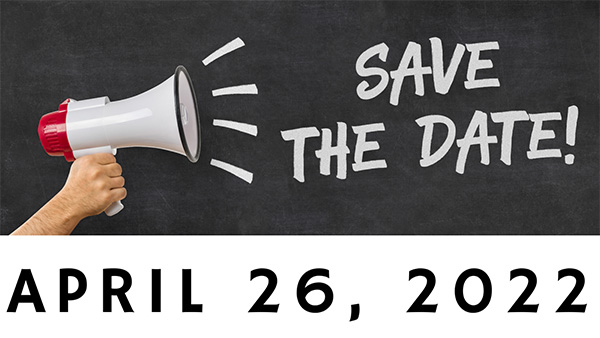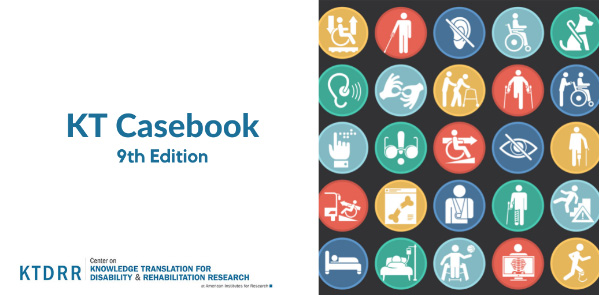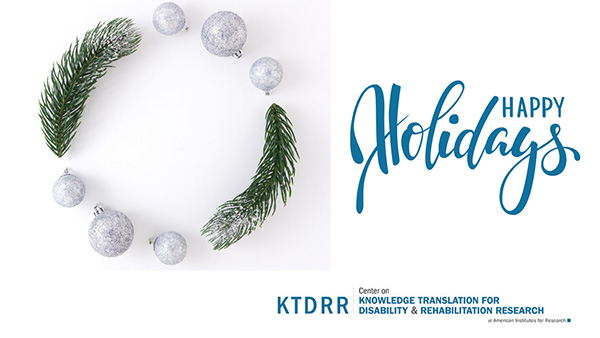New Webcast Coming Up on January 26: Current Strategies for Updating Systematic Reviews
Save the date: Wednesday, January 26, 2022 (2:00–3:00 p.m. ET) for the next event in KTDRR’s webcast series on research synthesis,
Current Strategies for Updating Systematic Reviews. Representatives of international organizations that are well-known and respected for conducting systematic reviews (SRs) will discuss their approaches and strategies for updating SR. Given that it may take a year or longer to complete an SR and that the data synthesized are even older, the need for updating is a critical part of the SR process.
Dr. Carlton Fong, editor of Campbell’s
Disability Coordinating Group
will discuss the processed implemented in an
updated SR published in 2021. Dr. Chiara Arienti, coordinator and methodologist,
will present the perspective from Cochrane Rehabilitation by sharing the process used with the
REH-COVER project, a rapid living SR on
rehabilitation intervention for the management of COVID-19. Professor James Thomas, deputy director of the
EPPI-Centre, University College London, will describe the latest tools and processes for updating,
including the living systematic map of evidence on COVID-19.
REGISTER NOW
KTDRR’s CoP-EDR Examines
Best Strategies for Synthesizing Research

KTDRR's Community of Practice on Evidence for Disability and Rehabilitation Research (CoP-EDR) has one session remaining in a three-part series, “Navigating the Seas of Evidence Synthesis.” A systematic review is known as the gold standard but may not always be the best choice. Depending on the context, a scoping review or other research synthesis strategy may be more appropriate. CoP facilitator Dr. Tanya Horsley is leading the group in examining approaches to research synthesis and selecting the best method to answer specific research questions. Dr. Horsley is associate director of research at the Royal College of Physicians and Surgeons of Canada.
- The first session focused on the nature, purpose, and value of common synthesis approaches including systematic, scoping, realist, and traditional reviews.
- The second session addressed the types of synthesis methods most suitable for answering specific research questions and the knowledge produced by these methods.
- The final session in the series, “Learning Through Application – Experiences From the Trenches,” will be held on February 23, 2022 (2:00–3:30 PM ET) and include a discussion of learnings and experiences from a case example.
The CoP-EDR focuses on the creation, evaluation, and use of evidence and related tools and strategies. For more information, please contact
Joann Starks.
ICYMI: KTDRR21 Archives Now Available

The Center on KTDRR hosted its 9th annual online knowledge translation (KT) conference
on October 25, 27, and 29, 2021, with the help of several presenters and lively reactors to help lead discussion of the conference
presentations about this year’s theme: “Research Results for Policy Outcomes.” The conference archive is now available for viewing at
https://ktdrr.org/conference2021/expo/conf_materials.html.
NIDILRR’s Director Dr. Anjali Forber-Pratt welcomed attendees to the conference, followed by words from the center’s project officer and NIDILRR Knowledge Translation Program Coordinator, Pimjai Sudsawad. The first day’s subtheme was “Engaging Stakeholders Early for Policy Impact.” To help the audience distinguish between engaging policymakers and lobbying them, Barbar Shumar from Management Concepts outlined “Restrictions on Lobbying for Federal Grantees.” Then, giving an example of policy change at the institutional level, the audience heard from Tanya Horsley of the Royal College of Physicians and Surgeons of Canada about “Knowledge User Collaboration in Research at the Organizational Level: Applied Perspectives and Aha Moments.” The day closed with a thought-provoking, and at times sobering, talk about “Engaging Communities That Experience Historical Trauma at the Nexus of Disability, Race, Ethnicity, and Culture” from Tawara Goode of Georgetown University’s National Center on Cultural Competence.
Day 2 focused on “Strategies for Reaching Out to Policymakers” and had a mix of presenters from both the research and practitioner worlds. The first panel included Liz Weintraub of the Association of University Centers on Disabilities, Jeff Johnson from Missouri People First, and Clark Rachfal of the American Council of the Blind. Together, they highlighted their lived experience enacting grassroots policy change. The next presentation illustrated efforts that the EPPI-Centre at University College London has developed to promote use of evidence to meet the challenges of the COVID-19 pandemic. David Gough walked the attendees through the model that “The UK International Public Policy Observatory (IPPO) on COVID-19" has engaged in to meet the public’s demand for research synthesis in this area. The afternoon closed out with a moving viewing and discussion of “Personifying Policy: The Disabilities Stories Project and the Films of Jason DaSilva,” and the conference was privileged to have the filmmaker DaSilva himself join us as well as a NIDILRR grantee Jae Kennedy of Washington State University.
The conference closed out with an afternoon of research-informed policy examples. In “Being Useful to Diverse Parents with Disabilities, their Children, and Families,” Megan Kirshbaum of Through the Looking Glass described her accomplishments in changing policies that posed barriers to parents with disabilities. Michael Morris of the National Disability Institute recounted his trajectory of NIDILRR-funded research projects that led to the Achieving a Better Life Experience (ABLE) Act, in “From Asset Accumulation and Tax Policy Research to the ABLE Act.” To close out the conference, Bobby Silverstein of Powers Pyles Sutter & Verville PC gave tips from his career, aptly summed up in his presentation title, “Translating Research Into Disability Policy.”
Save the Date: April 26, 2022
Workshops on “Outreach to Policymakers” and “Science Communication and Public Engagement”

Do you remember face-to-face conferences and workshops? They’re back in 2022! Save the date for two workshops the Center on KTDRR is hosting on Tuesday, April 26, 2022, at the Ritz-Carlton Pentagon City in Arlington, Virginia. The NARRTC conference runs April 27–28, 2022.
The morning offering will be our “Outreach to Policymakers” workshop, facilitated by Bayer Strategic Consulting. Learn about (and practice!) the best strategies for sharing research information with state and national policymakers from Mark Bayer of Bayer Strategic Consulting. Management Concepts will introduce the workshop with a short presentation describing restrictions on lobbying pertinent to federal grantees.
This workshop was offered online in January 2021 and just closed out its second iteration online on December 10, 2021. If you missed those online versions, or want a refresher and can travel in April, join us!
You can register at the following link, and we’ll keep you up to date on details:
https://survey.alchemer.com/s3/6519151/Registration-2022-PolicyOutreachWorkshop
In the afternoon, you can attend “live and in person” the workshop that the American Association for the Advancement of Science facilitates for us on “Science Communication and Public Engagement.” Learn fundamentals from current science communication research and basic best practices for engaging with the public. Participants will develop individual plans that include a public engagement goal and ways to engage a relevant audience with tailored messages. Attendees also brainstorm an engagement scenario and identify steps to put their plans into action. Let us know you’re “in” and register now!
http://s.alchemer.com/s3/6ba62190258f
Note: Both workshops are free and open to the public; however, registration is capped at 25 attendees, and we give priority to NIDILRR grantees. The Center on KTDRR does not cover travel costs for attendees.
New Edition of the Center on KTDRR’s KT Casebook

We're excited to announce the launch of the 9th edition of the KT Casebook! Take a look to see how NIDILRR grantees are using innovative, effective, and measured KT strategies to ensure their research is useful to their audiences.
This edition of the KT Casebook highlights grantees from NIDILRR's technology portfolio. The Center on KTDRR would like to thank Jon Pearlman and Michelle Zorilla of IMPACT, the NIDILRR-funded center that supports the technology grantees' knowledge translation needs, for their close collaboration in nominating entrants and developing entries.
Many thanks to those who submitted entries to this edition of the KT Casebook for an opportunity to showcase your KT activities. If you are part of a NIDILRR project, please contact us about submitting an entry for the 10th edition of the KT Casebook.
Happy Holidays and Happy New Year
From the KTDRR family to yours, have a wonderful holiday season and a happy new year!

|



